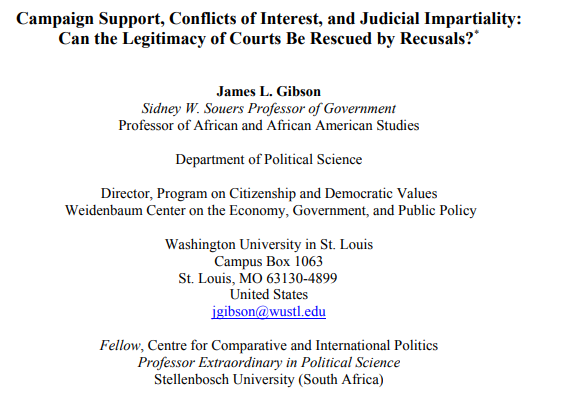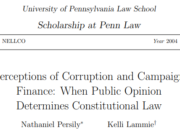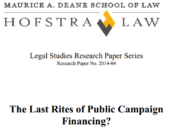Many legal scholars and observers perceive elected state courts in the U.S. as under siege by the politicization of judicial elections – most offensively, by accepting campaign contributions and support from organizations litigating before the very judges these groups helped elect. As such, the authors investigate citizen perceptions of the impartiality and legitimacy of courts. They focus on the residents of West Virginia, because that state has recently been a battleground for intense conflict over campaign support and perceived conflicts of interest and loss of impartiality. Through a representative sample of West Virginians, the authors test the hypothesis that recusals can rehabilitate a judge and/or court from perceptions of conflict of interest. Their findings were surprising, particularly in that contributions offered but rejected by the candidate have similar effects to contributions offered and accepted. To conclude, the authors’ apply their findings to the recently decided Caperton v. Massey case. They find that several of the assumptions of the majority in the case are empirically inaccurate, at least from the viewpoint of the citizens of West Virginia.














